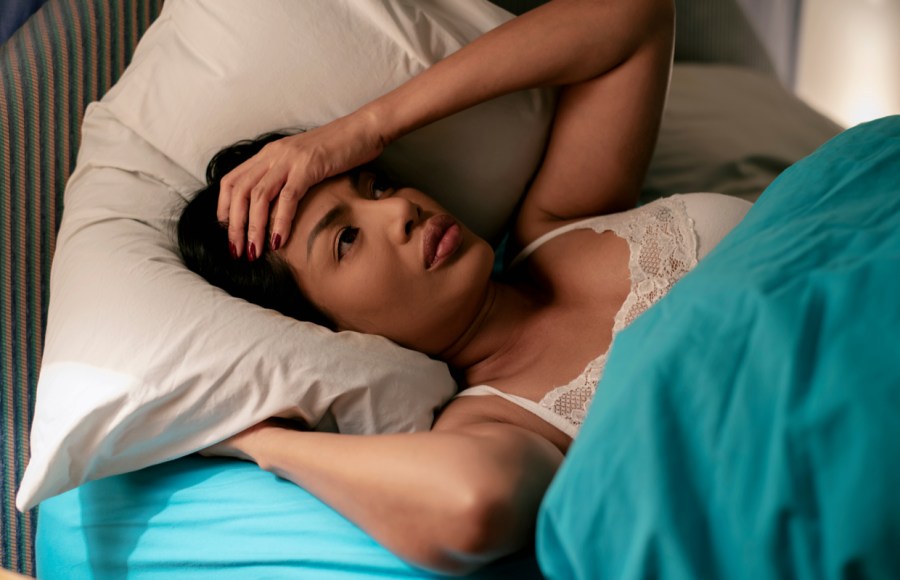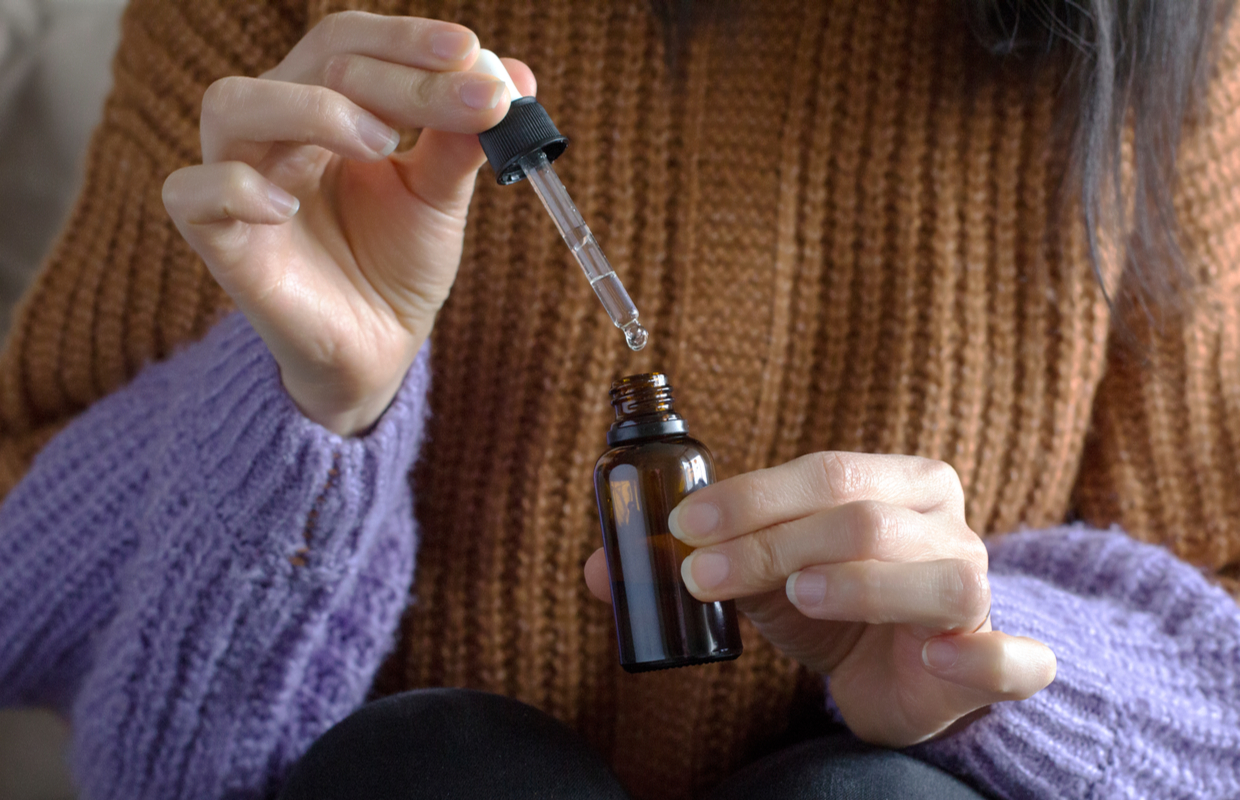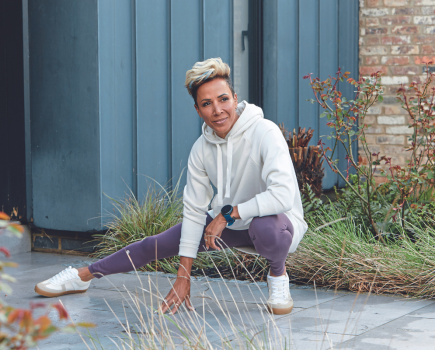Disrupted sleep and even insomnia are finally being recognised as mainstream menopause symptoms, but is help at hand? Broadcaster and author Mariella Frostrup looks at the strategies and solutions to getting some quality shut-eye…
Menopause and lack of sleep are as closely intertwined as a pair of lovers. There, of course, any similarity very much ends.
An extraordinary 60 per cent of 45- to 54-year-olds and 65 per cent of those aged 55-64 say their sleep is rubbish, according to a 2019 survey in The SundayTimes. This seems to confirm poor sleep as a symptom of menopause, from peri to post, less well recognised but just as ubiquitous as the hot flush.
Insomnia was the first symptom of menopause that affected me, starting with frustrating nights of jerking awake and not managing to fall asleep again. Just how bad for you lack of sleep can be has only recently come to light. The most important thing about sleep isn’t just how the next day feels, but how vital it is for your ongoing health.
Not sleeping is linked to poor brain function, low mood and stress. More ominously, long-term lack of sleep has links to heart disease, Type 2 diabetes, respiratory problems, dementia and obesity. Those who sleep fewer than six hours a night on average have a 13 per cent higher mortality risk than those sleeping at least seven hours.
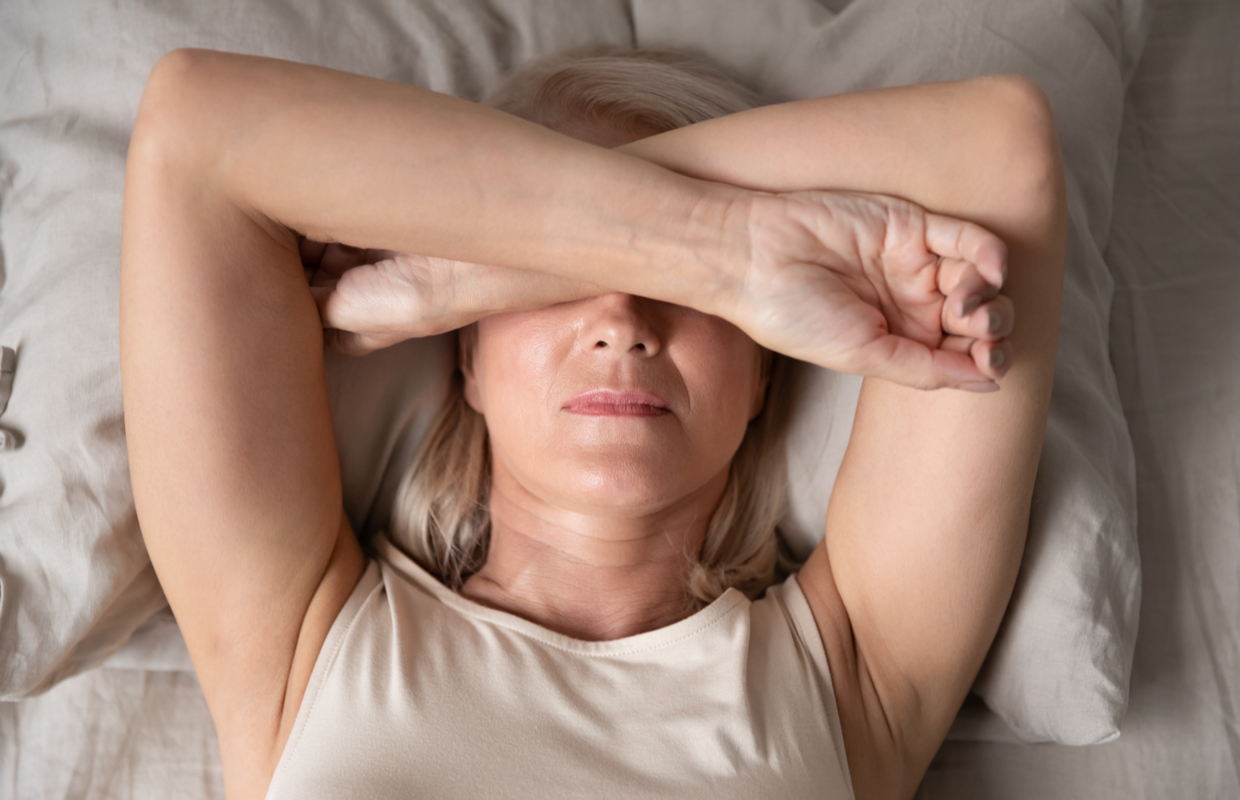
What causes hormonal insomnia during menopause?
So, what’s causing sudden insomnia during your peri- and post menopause years? Of course, there are worries about children and parents, partners and careers, but far more universal are your fluctuating hormones.
Oestrogen, progesterone and testosterone all play a part in the quality of your slumber. ‘Hormones affect women’s ability to sleep throughout their lives, from the point of puberty, through pregnancy and finally menopause,’ says sleep expert, Dr Neil Stanley.
He says there may be a simple explanation. ‘A recent paper suggested the effect hormones have on sleep is merely because of the fluctuations in body temperature.’ Whatever the merits of his observation, only a man would say ‘merely’ in that context.
Your body perceives a rise in heat as being a threat. When your eyes are closed, you don’t know whether the house is on fire, or if you’re hot because of hormones. Therefore, your natural defence mechanism wakes you up and, for many, that’s the end of it.
There is also the fact you may have lower levels of progesterone, which can make you feel sleepy by increasing production of GABA, a brain chemical that helps sleep.
Finding a solution for insomnia during menopause
The ridiculously long list of medications and supplements in my armoury rather proves there’s no simple solution to insomnia caused by menopause. I take my HRT, in the form of oestrogen gel in the mornings and a progesterone tablet in the evenings. I assume this helps, but it’s not a cure-all. And it doesn’t quite tick the sleep box for me.
I’ve also tried CBT breath counting (it works, but not always), CBD oil (quite helpful), having a bath with lavender oil (occasionally helpful), sleeping pills (helpful, but don’t want to be addicted), white noise (better than just the sound of my thoughts rattling around), melatonin (in small doses) and the Calm app (again, better than my own thoughts, but often they break through).
Professor Kevin Morgan at Loughborough University is a sleep expert, and he – bafflingly – doesn’t necessarily recommend my scattergun approach.
‘The problem with, say, sleeping tablets or melatonin is they offer short-term solutions for what can be a longer-term sleep problem,’ he says. ‘If you address sleep problems with a pharmacological response, it pays to consider your exit strategy.’
6 treatment options for insomnia during menopause
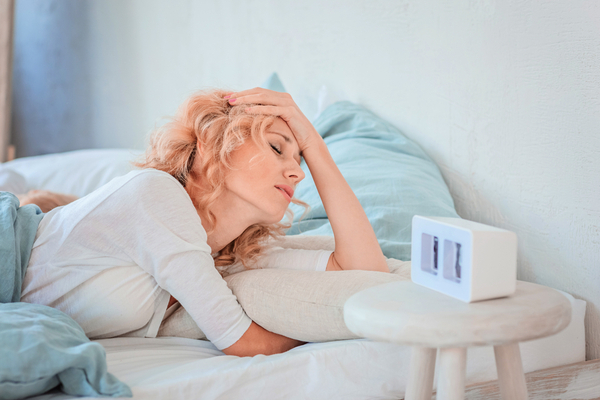
HRT (Hormone Replacement Therapy)
This has been shown to help reduce night sweats. Progesterone also helps you relax and is known to increase the production of GABA. Low testosterone can also affect sleep.
Related: Is HRT right for me? Pros + cons of hormone replacement therapy
CBT
‘It’s the frontline treatment for insomnia,’ Neil says, and it’s supported by the NHS. He says it’s as good as, if not more effective than, sleeping tablets.
CBT is about reframing the fact that poor sleep is just a bad habit and learning what affects sleep. Free on the NHS is Sleepstation.org.uk (though you need a GP referral) and Sleepful.me is also a free app.
Sleep hygiene
Experts recommend your room be as cool as possible and that you wear natural fibres to wick away moisture, as well as using cotton sheets.
Plus, don’t do anything before bed to increase body temperature, such as eating late, drinking too much alcohol or doing vigorous exercise, although exercise during the day does help sleep quality. And we all know about leaving gadgets downstairs.
‘Another – controversial – suggestion is not sleeping with your partner,’ says Neil. ‘They can be like a big hot water bottle.’ Also, get up and go to bed at the same time every day. This maintains your body clock.
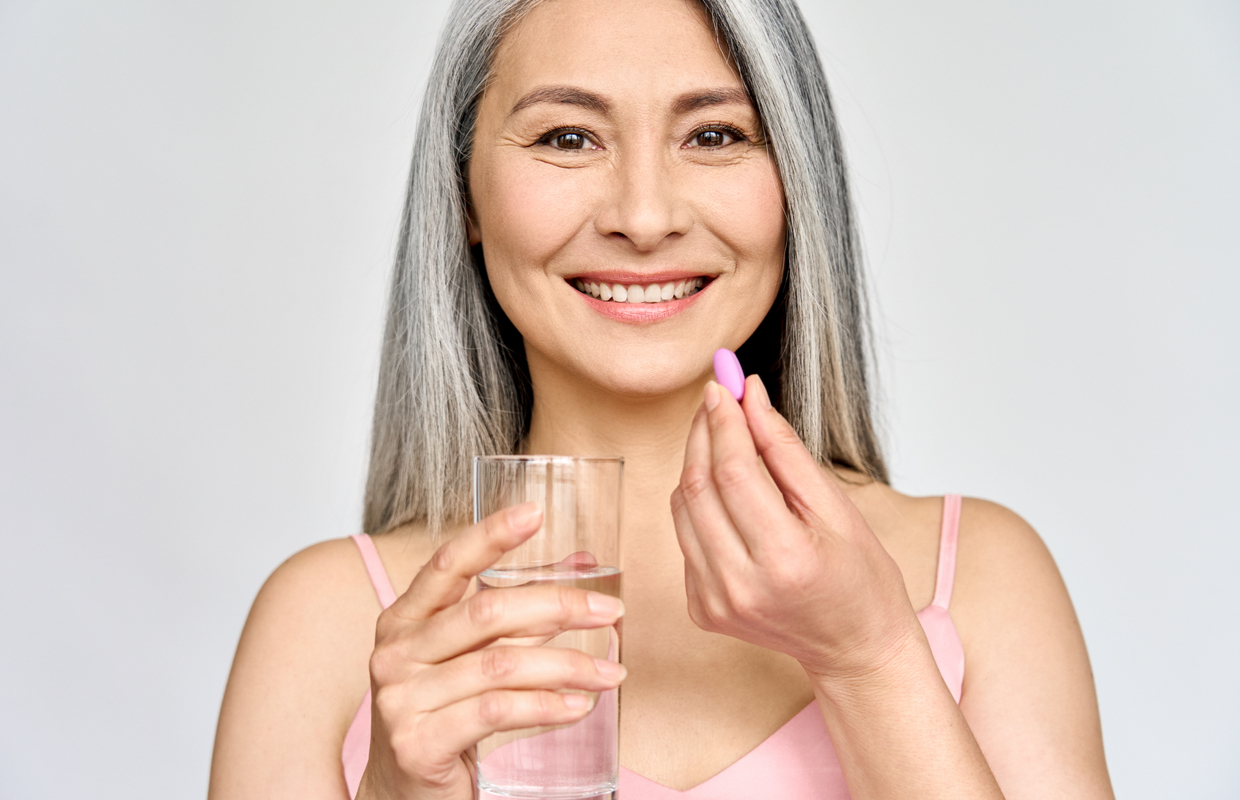
Certain supplements, like melatonin, magnesium and valerian, could help you to get a better night’s sleep.
Melatonin
‘Melatonin isn’t a sleep hormone,’ says Russell Foster, a professor of Circadian Neuroscience at Oxford University. ‘It’s a biological marker of the dark and it modulates but does not drive sleep.’
As the day turns to night, your body produces melatonin as one of many signals that it’s time to go to bed. People with heart problems, those on beta blockers and the elderly have lower levels of melatonin, and this may contribute to the poorer sleep seen in these groups.
As a supplement, people have used it to slightly induce sleepiness. It is only available on prescription in the UK for those over 55. ‘Part of the problem is sometimes melatonin works and sometimes it doesn’t,’ says Russell.
‘Some people seem sensitive to it but some aren’t. All the evidence suggests it isn’t dangerous. The only thing I’d be careful about is if there is a family history of mental illness, as there is some evidence it might lower mood.’
Supplements
There is some evidence of efficacy for valerian, passiflora and hops. Passiflora is said to reduce brain activity and help sleep. Valerian has sedative effects and hops also appear to affect melatonin and the happy hormone, serotonin.
‘They’ve been mentioned since the 15th century, so purely on the basis of longevity, there’s a belief that they work. Remember, just because they’re natural, doesn’t mean there aren’t contraindications with medication. Always check,’ says Neil.
There is some evidence too of magnesium’s usefulness. It helps with leg cramps and muscle relaxation, and those who have trouble sleeping often have low levels of magnesium. Magnesium and melatonin together are said to be especially effective.
Related: 10 best herbal remedies and supplements for menopause relief
Bach Flowers
I know someone who swears by Bach Rescue Night Remedy (£8.49), which contains white chestnut. This is said to help switch off your mind from unwanted thoughts and overthinking. However, I couldn’t find any conclusive clinical studies on it myself.
Cracking the Menopause: While Keeping Yourself Together, by Mariella Frostrup with Alice Smellie (£20, PanMacmillan) is out now.

